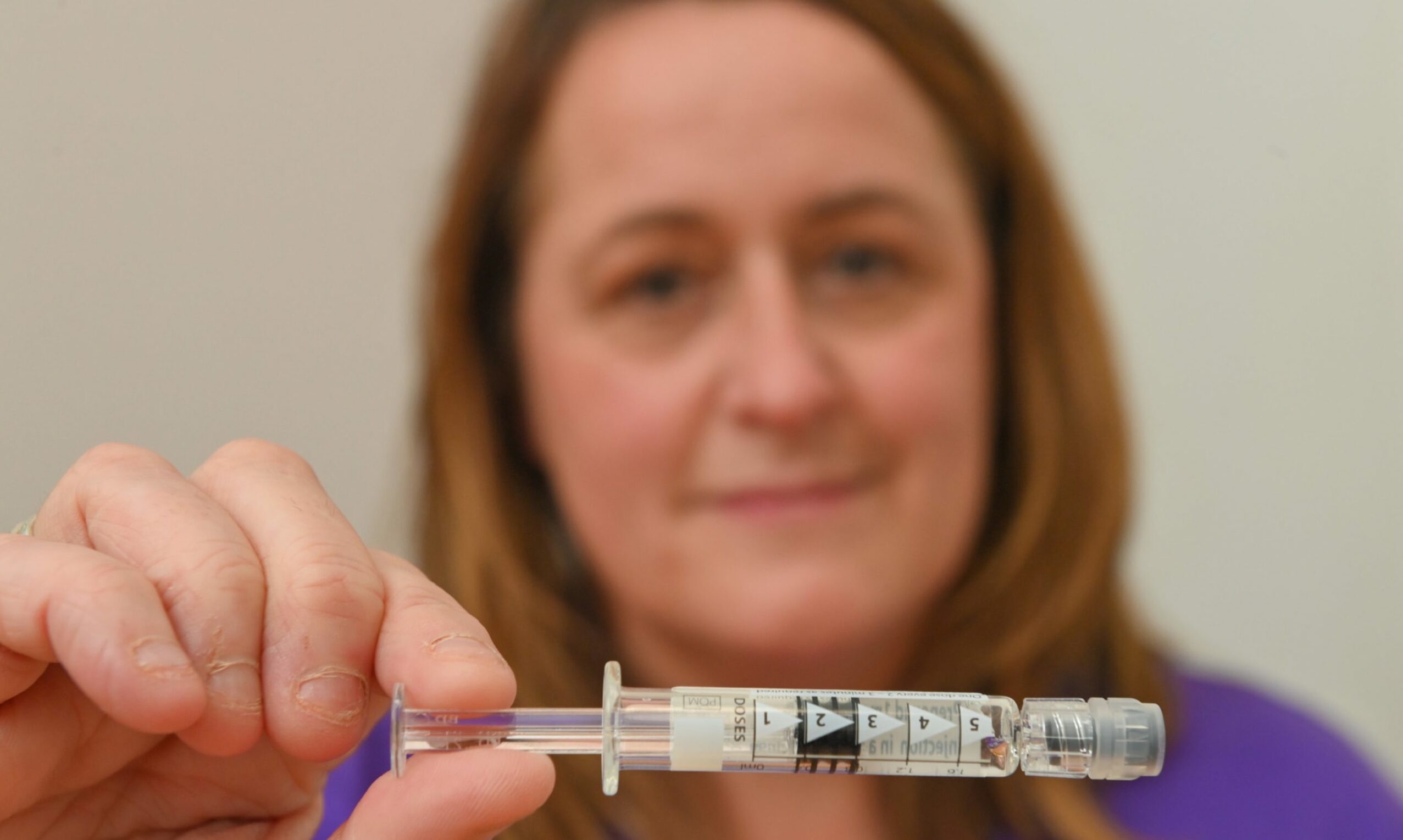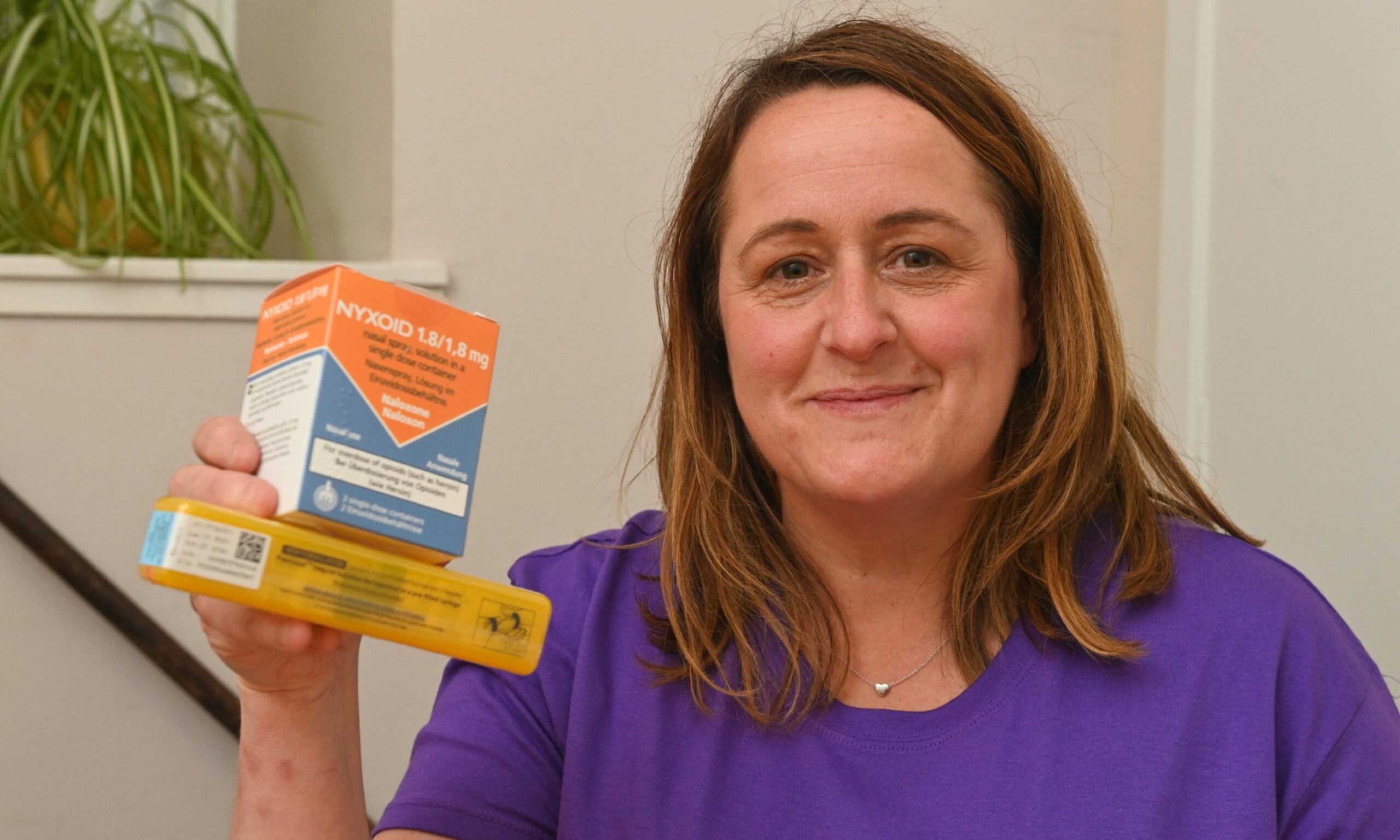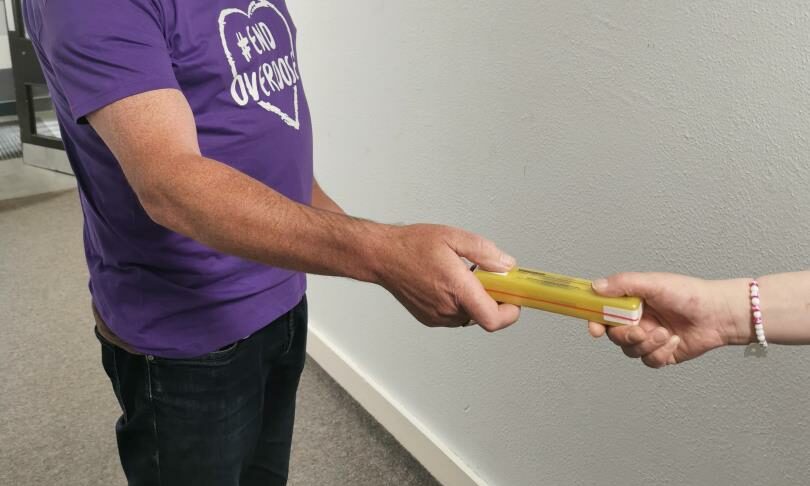Specialist medication that rapidly reverses the effects of some drug overdoses is saving almost one life every week in Aberdeen.
In the last year alone, nearly 400 naloxone kits have been handed out – and 48 have been used in an emergency situation.
Available as an injection or nasal spray, it helps to reverse an overdose from opiates – drugs linked to opium such as heroin, codeine and oxycodone.
Last year drug-related deaths in Scotland rose to 1,339 – the highest on record – with 89% involving opiates.
Now, on International Overdose Awareness Day, health chiefs are encouraging more people to come forward and learn how to save a life.
“A client had a friend coming out of prison, which is a high-risk time for overdose.
“I advised she get a naloxone kit and Sharp Response delivered that day.
“She had to use it 12 hours later and the paramedics said she saved her friend’s life.” – ADA recovery worker
How to recognise an opioid overdose
Opioids relax the body and can induce euphoria, slowing down someone’s breathing and heart rate.
In high doses, this can cause a person to stop breathing – potentially inflicting brain damage or killing them.
There are a number of signs to look for if you think someone has taken an overdose:
- Loss of consciousness and unresponsive – or awake but unable to talk
- Slow or erratic breathing
- A pale or clammy face
- Blue or grey skin and lips
- Limp arms and legs
- Unusual snoring, choking or gargling sounds
Check it is safe to approach them, and try to get a response by shaking them, shouting their name or rubbing your knuckles on their sternum.
Place the person in the recovery position and monitor their breathing – you may have to apply rescue breaths and chest compressions.
Should I use naloxone?
At this point, any naloxone kit available should be used to help reverse the overdose while help is on the way.
This can come in the form of a Prenoxad injection or Nyxoid nasal spray.
Gillian Maclean, a senior practitioner at north-east charity Alcohol & Drugs Action, is in charge of the city’s naloxone roll-out.
“We want to see it as part of everyday first aid,” she said.
“Training takes five to 10 minutes and there are no barriers – male, female, health problems, if you’re pregnant.
“In any situation, anyone can administer it.”
How do I use naloxone?
See our video with Gillian above for the key points you need to know if administering naloxone in an emergency.
If injecting Prenoxad, you twist the plastic container to open it then prepare the syringe by lining up the needle and screwing it into place.
Hold it like a pen and inject one dose in their upper arm or outer thigh.
For Nyxoid, gently insert the spray nozzle into one nostril then press on the plunger until it clicks and the dose has been administered.
Wait with the person until an ambulance arrives. If you see no change after a few minutes, you may need to give the person another dose.
“I have had the misfortune over 30 years as an emergency worker to attend drug-related deaths and the devastation that it brings to all concerned.
“Since I began a new career with ADA, I have seen how straightforward and valuable carrying or distributing a kit can be.
“Can you put a price on saving a life? I think not.” – Andy, Sharp Response worker
Frequently asked questions
What if it’s not a drug overdose?
Naloxone can cause some side effects in people, but because of its use in emergency situations the health advice says these risks are “largely irrelevant”.
If you suspect someone is having an opioid overdose, these kits could save a life.
They will not work on other types of drug overdose, but will not have any other effect.
Will I get in trouble?
“It’s absolutely fine to use,” Gillian said. “Nobody will ever be prosecuted for it.”
Where can I get a kit?
Naloxone is available in a wide number of places throughout Scotland, including many pharmacies and alcohol and drug partnerships. They can be collected from ADA’s base at 7 Hadden Street, Aberdeen, and delivered through its outreach programme.
For more information visit alcoholanddrugsaction.org.uk or call their team freephone on 0333 3 448 355.
“I can’t think of a more important contribution to the harm reduction cause that we strive for, than to have provided the kits and training that subsequently saved lives.” – Simon Pringle, ADA


